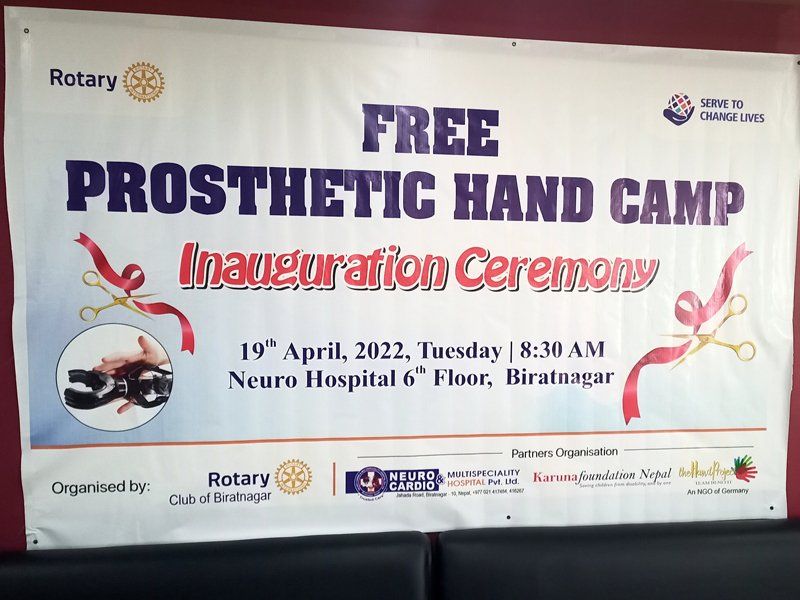
"Fitting-Days"
What is a Fitting Day and how is it organized?
-
1. How do the prosthetic hands reach the recipients?
Since the prostheses have to be adapted to the respective recipient, it is necessary to meet the recipients in person. For this purpose, regional fitting days are organised.
-
2. How to reach the recipients?
Or pointed. "How do you reach the unreachable?" The prostheses are intended for the "poorest of the poor", i.e. for people whose medical history is usually not registered anywhere (sometimes the people themselves are not), who are often illiterate and who, if at all, are on the Internet , do not look there for help for their amputation. They can only be reached by people who are very familiar with the region. These are usually NGOs that are working on other core issues and are establishing contacts in the process. They are both the intermediaries and mostly the ones who organize the fitting days. It is also important to get as much information as possible about the clinical picture of the individual recipient in advance in order to avoid disappointment. It is tremendously frustrating for everyone involved when a recipient has traveled two days to a meeting point and then cannot be helped with the resources available.
-
3. How is a fitting day organized?
That depends on the local partner organization and varies enormously. Two examples:
-
4. Who organizes the fitting days and who runs them?
The fitting days are usually prepared and organized by regional NGOs, see > How is a fitting day organised. At least the first fitting days in each region are carried out directly by TheHandProject. Chris is there with two supporters and at the same time is training regional forces. Depending on previous training and the success of the training, the NGOs may already be able to take over the second round on their own.
-
5. How many recipients actually use your prosthesis afterwards?
Statistics for these topics are unfortunately only sparsely available since 2022. We know from Nepal that about 84% of the recipients use their prosthetic hands on a daily basis. In Ghana it is about 75%.






